



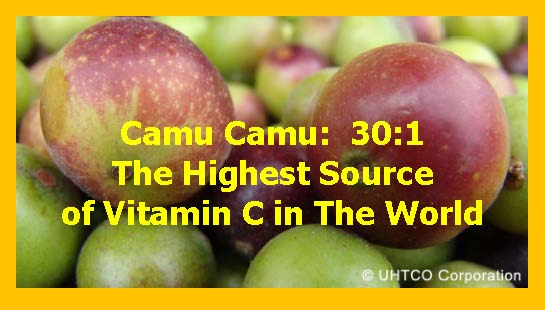
GET YOUR VITAMIN C FROM THE SOURCE!
Camu Camu: The Highest Source of Vitamin C in The World
This isn’t the first time we hear that vitamin C is good for us, but, are all vitamin C’s the same?
Certainly not, and definitely not all of them are good for us.
There are many natural sources of vitamin C, practically everything in the produce section contains some of this complex and so important compound. Products like kiwis’, oranges and strawberries are considered to be sources of natural vitamin C, only a handful of products though are considered to be excellent sources of this precious nutrient.
But before talking about the actual sources of vitamin C, let’s put our knowledge to a test, and see how much we know about this vitamin.
Vitamin C is a water soluble vitamin normally found in food, fruits and vegetables; it is a complex compound made out of different elements like flavonoids (or bio-flavonoids), flavonols, flavanols, minerals and many other substances.
Another form of vitamin C is what we know as Ascorbic Acid, it is not vitamin C - Ascorbic Acid is a separate and individual compound, a synthetic form of vitamin C often made from genetically modified corn sugar (or similar base), transformed through chemical processes to mimic only one of the numerous life-supporting molecules found in a 100% whole food natural vitamin C. Its name comes from the Latin words “a” — (meaning “no”) and “scorbutus” (meaning “scurvy”), a disease caused by vitamin C deficiency… so the name does come from a natural remedy for a common ailment, but what we know today as ascorbic acid is far distant from natural and beneficial.
“Ascorbic Acid” is not the same as Vitamin C, “Ascorbic Acid” is man-made, with all the implications (side effects, interactions & toxicity), Vitamin C is All Natural & is provided in Real Food… Big Difference!
Do you feel like you have been fooled? Don’t worry, we all feel the same, it’s been like this for a long time thanks to the pharmaceutical industry & governments that supports them.
Vitamin C in its Natural Form is one of the safest & most effective nutrients the body can have, a Protector Against Immune System Deficiencies, an Essential Building Block of Collagen and a Powerful Antioxidant.
As a Protector Against Immune System Deficiencies, Vitamin C helps the body in the production of white blood cells, key in preventing & fighting infections like colds, flu’s & viruses. Vitamin C is not a remedy but does help to relieve the symptoms and shorten the duration of colds, flu’s and viruses.
As a Building Block of Collagen, Vitamin C represents the raw material to produce this important protein. Collagen is used to grow & repair connective tissue in our body, renew & maintain skin, cartilage, tendons, ligaments, blood vessels & bones. Collagen is also essential to repair & maintain the good health of the entire nervous system.
As an Antioxidant, it protects the body against the effects of substances & elements that cause accelerated aging & the deterioration of good health. It’s success against free radicals that damage your healthy cells, makes vitamin C a good preventative for conditions such as diabetes, heart disease & even cancer.
So, How Does Vitamin C Work In Our Body?
Humans synthesizes the vitamin C from food, there is no internal production of vitamin C from enzymes like most animals do, plain and simple… Food Is The Source! But what happens when food is low in nutrients or our diet is based mainly on fast or processed food? There will be deficiencies of Vitamin C, supplementation is required.
Noticeable signs of vitamin C deficiency include cracked and scaly skin, opaque dry splitting hair, slow healing of wounds, easy bruising, nosebleeds & a obvious ability to acquire infections. Serious vitamin C deficiencies may cause gingivitis (inflammation of the gums), bleeding gums & scurvy.
Vitamin C deficiency may have other consequences in the long run, including problems with blood pressure, stroke, atherosclerosis (plaque build-up) and some cancers.
Getting enough Vitamin C from a good balanced diet or adequate natural supplementation is a must, especially if we want to maintain a healthy body in a good working environment.
There are many sources of natural vitamin C but only a handful stands out for its value & benefits, and Camu Camu is one of them.
What is Camu Camu? Camu Camu is a Very Special Fruit, a True Super Food considered by many as a Vitamin C Powerhouse. The fruit originates in Peru, but is also grown in Brazil, Venezuela and Colombia.
The fruit is like a berry or grape, the size of a cherry of light bright-green & dark matte-red colour, has a very hard & thick skin & inside, a juicy sour & astringent pulp.
The fruit is produced by a small shrub found throughout the Amazon rainforest of Peru & grows wild in swampy flooded areas on the shore line of the Amazon River & effluents. Its name comes from an old, almost extinct language that influenced the aboriginal people of the Amazon of Peru… the name has a meaning on its own. In the aboriginal Amazonian language the word “camu” means “lots of water”, so Camu Camu means “twice as much water”, a name used to describe the way the plant grows, underwater!
The fruit is collected using canoes & the process is completely done by hand, like the old days - it is a very impressive task considering the wilderness of the area & time used to reach the areas where Camu Camu is grown.
Camu Camu contains an impressive amount of natural vitamin C, about fifty times the amount contained in oranges & by far more than any other fruit or vegetable. Its Vitamin C compound is quite complex & impressive, surpassing any other known source.
Camu Camu definitely has the highest recorded amount of natural vitamin C known on the planet!
What are the benefits of Camu Camu?
First of all we are looking at an all natural whole food vitamin C source with the highest and most complex compound compared to anything known in this world, so what could you expect? Basically everything we look in vitamin C, all of its benefits, but substantially increased.
The
following are some of the Specific Benefits of taking a Natural Source of
Vitamin C, like Camu Camu 30:1
- Detoxifies
the Entire Bodily System Focusing its action on the liver
- Promotes the Generation of Healthy Levels of White Blood Cells
- Boost & Strengthens the Immune System
- Improves & Provides Relief to Common Colds & Flu’s
- Provides Relief to Viral Infection Symptoms such as Blisters,Shingles,
Herpes & HPV
- Antibacterial
- Improves Blood Circulation -
Reducing Plaque Formation & Keeping
Arteries Flexible Avoiding
Atherosclerosis
- Promotes the Generation of Collagen
- Strengthens
the Nervous System
- Promotes the Growth & Repair of
Connective Tissue
- Renews & Maintains Healthy Fresh Skin
- Anti-Aging
- Prevents Arthritis & Osteoarthritis
- Promotes the Generation of Enzymes & Facilitates the Absorption of
Nutrients in the system
- Antidepressant
- Over All Well Being
Camu Camu is the greatest source of Natural Vitamin C with a full array of naturally occurring vitamins, minerals & amino acids. It is to your benefit to take Camu Camu than a simple, high value synthetic ascorbic acid tablet.
Remember the famous quote,
“Let
food be thy medicine and medicine be thy food.”
― Hippocrates
Camu Camu 30:1 by Peruvian Harvest, a Canadian company of Peruvian origins dedicated to create, manufacture & distribute the most unique high quality products from Peru.
1 Tsp = approx. 840 mg of Whole Food Vitamin C; 30 Kg of Camu Camu Berries makes 1 Kg of Powder
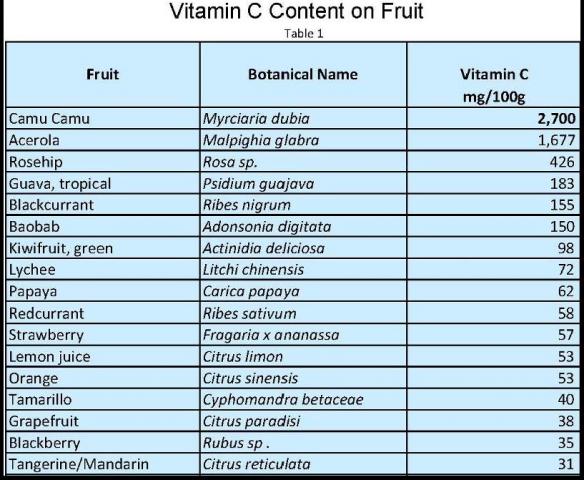
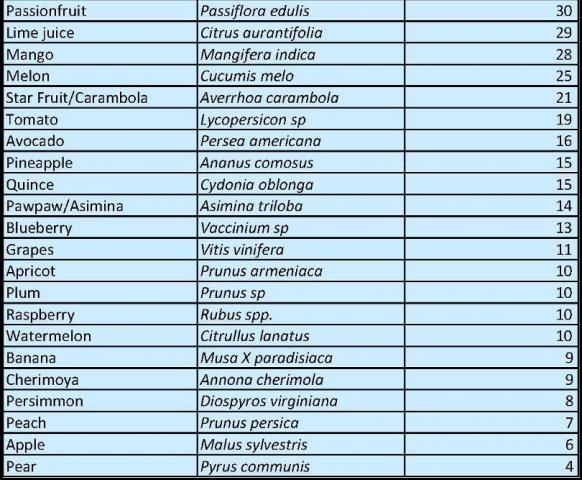
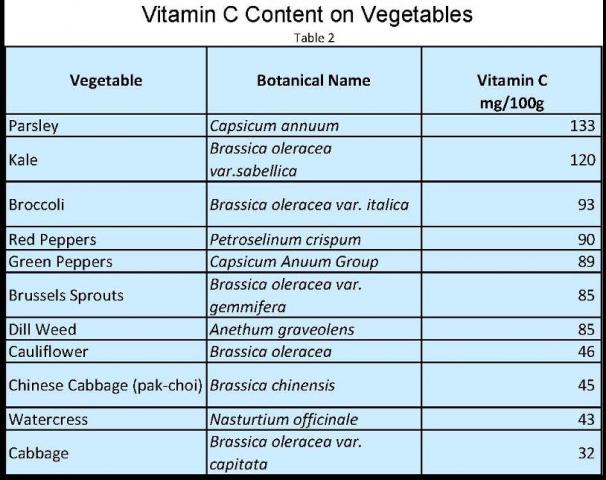
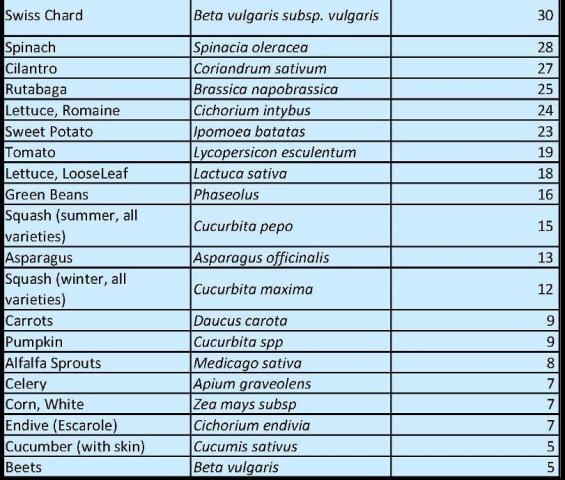
Warning Signs of Vitamin C Deficiency
Most people have trouble keeping their diet in check and many don't meet their recommended daily levels of essential nutrients. Most North Americans fall short of consuming enough Vitamin C. Getting enough of this essential vitamin is important for our overall well-being. High blood levels of vitamin C may be the ideal nutrition marker for overall health.
Vitamin C: Why You Need It
Vitamin C is a powerful antioxidant. It is also essential for many reasons. Vitamin C has been found to:
Are You at Risk of Vitamin C Deficiency?
In extreme cases, severe vitamin C Deficiency is known as scurvy (a
disease characterized by bleeding gums and loss of teeth) - research has found
that many people do have low levels of this vitamin, the National Health and
Nutrition Survey found that 81 percent of the population do not meet the
estimated average requirement for vitamin C. Certain people, are more at risk
for being deficient in this vitamin than others. This includes:
Vitamin C Deficiency: The Warning Signs
If you are
concerned that you might be deficient in vitamin C, here are some signs and
indications you should be on the look-out for:
1. Easy bruising
Bruising s a natural response to
certain injuries - usually a fall or a knock. It is caused when small blood
vessels near the skin's surface (capillaries) break and leak red blood cells.
In certain situations, bruising is to be expected. Yet excessive or unexplained
reddish-purple marks on the skin may point to a lack of vitamin C in the diet,
due to weakened capillaries. Even minor deficiencies of vitamin C can lead to
increased bruising. If this often happens to you, try to increase your dose and
see if it has an effect. Studies show
that consuming more vitamin C has been found to reduce the effects of
bruising.
2. A wound that takes long to heal
Look into your diet if you have cuts and scrapes that are slow to heal. Vitamin C is essential to the formation of collagen in the skin. This connective tissue helps bind a healing wound, therefore a lack of it can lead to slow healing. Vitamin C also acts as a powerful antioxidant and immune system booster, both of which encourage faster healing.
3. Swollen, bleeding or inflamed gums
Swollen or bleeding gums or recurrent mouth ulcers are often linked to low
levels of vitamin C. Collagen plays an important role in supporting gum health,
however, it is estimated that gums turn over at least 20 percent of their
collagen every day. Consuming vitamin C is therefore vital for healthy teeth
and gums. Low levels are also linked to gum disease - ranging from gum inflammation to soft tissue damage.
Low vitamin C can progress if not addressed, which can eventually lead to
scurvy.
4. Dry or splitting hair and nails
Strong nails and a shiny head of hair are often good indicators of a healthy, balanced diet. However if they appear to be dry and splitting, it may indicate a deeper problem. Vitamin C usually makes its way into organs and tissues first before moving to the hair. So, low levels of the vitamin may cause you to have more than just a bad hair day. Vitamin C is also vital for the absorption of iron, a deficiency which can cause chronic hair loss and slow hair growth, as well as brittle and concave nails.
5. Red, Rough or Dry Skin
Rough and dry skin, caused by a lack of collagen is one of the first signs of
scurvy. Low levels of vitamin C are also linked to a common, yet harmless skin
condition known as keratosis pilaris, characterized by small, hard bumps on the
upper arms, thighs, buttocks and face. Adding vitamin C to your diet can
greatly improve skin tone and texture. Studies also show that diets high in
vitamin C provide better skin and less wrinkling. Vitamin C can also offset the
damage caused by the sun's UV rays.
6. Frequent nosebleeds
If you experience frequent nosebleeds don't dismiss an adequate diet as the underlying cause. More often than not, nosebleeds occur due to fragile small blood vessels. Adequate vitamin C, though, decreases their fragility.
7. Poor immune function
The immune system is what helps the body protect against infection and disease.
Consuming a diet rich in vitamin C can promote better functioning of the immune
system as several cells rely on this vitamin to perform their tasks. Being
deficient in vitamin C can therefore lead to a reduced resistance against
certain pathogens. Vitamin C may also reduce the duration of the common cold
(despite popular belief, it does not ward it off, rather, it affects its
incidence or severity).
8. Swollen and painful joints
Pain and swelling in the joints caused by inflammatory arthritis may be another sign that you need to check your vitamin C intake. People with low levels of vitamin C are three times more likely to develop rheumatoid arthritis, than those whose diets included foods rich in the vitamin.
9. Fatigue or depression
The two could be a result of many underlying illnesses and causes. One such cause may be a lack of vitamin C
intake. There is a link between vitamin C deficiency and psychological states.
Most hospitalized patients with suboptimal vitamin C levels demonstrate a perceived
improvement in mood after taking a supplement, by up to 34 percent.
10. Unexplained weight gain
Not having enough vitamin C in the bloodstream can lead to an
increase in body fat and waist circumference. The amount of vitamin C absorbed
by the body directly affects its ability to use fat as a fuel source during
both exercise and when at rest.
We all hear about vitamin C from an early age, and while it might not be the cure for a common cold as rumored (although it certainly helps prevent symptoms from getting worse), it does offer a huge wealth of health benefits. For this reason, it's important to make sure you get plenty of vitamin C from your diet. This guide will help you do just that!
What Does Vitamin C Do?
Vitamin C is a much discussed nutrient for a good reason. Higher levels of vitamin C in the blood can be a very good indicator of overall health and nutrition. As a nutrient, it offers a diverse range of benefits that effectively safeguard your overall health in a vast number of ways. It is a powerful antioxidant that also helps reduce oxidative stress inside the body, and increases your defenses against certain types of cancer. It also helps your immune system to function, promotes the absorption of iron into the bloodstream and helps care for your eyes. It really is a multi-purpose super vitamin!
Nutritionists and health experts recommend that the average adult gets between 75-90mg of vitamin C a day from their diet, and this is surprisingly easy to achieve. There are a number of natural, common fruits and vegetables that can provide 100% of your RDA in a single serving, and there is a lot to be said by taking in much more than 150 mg of vitamin C a day. The more, the better!
The Best Vitamin C Rich Foods
There are a number of foods that can help ensure that your body is kept topped up with vitamin C, and they are easily available in grocery stores and supermarkets. Here are the top 10 vitamin C foods you should add to your regular diet immediately:
1. Papaya
Papaya is not only a delicious, exotic fruit; it also provides 62mg of vitamin C per 100g (3.5oz) serving, which is 75% of the recommended daily intake for an average adult. It is also a great source of other nutrients including calcium and vitamin A, so it's not difficult to understand why it is often called the 'fruit of angels'. You can add ripe papaya slices to a salad or juice up a whole papaya and use it as part of a delicious fruit smoothie. However, please note that you should avoid papaya if you are pregnant, because it contains a substance that can cause contractions of the uterus.
2. Red Bell Peppers
Don't make the mistake of thinking that vitamin C is only sourced from fruits, because bell peppers contain a whole lot of this super nutrient. A 100g (3.5oz) serving of red bell pepper provides 80mg of vitamin C, which is a whopping 97% of the recommended daily amount for an adult. Green and yellow bell peppers are also rich in vitamin C, and all varieties contain a huge range of other nutrients. Given that it's such a versatile dish that can be steamed, roasted, or served raw in salads and sandwiches, it's easy to include some bell peppers in your regular diet.
3. Oranges
Oranges are probably the first food people think of when they consider vitamin C, and with good reason. One medium sized orange contains around 67mg of vitamin C, or 75% of your daily recommended amount, so although they might not be the very best source of vitamin C, there is still good reason to add freshly squeezed orange juice to your regular diet!
4. Broccoli
Another vegetable absolutely brimming with vitamin C is broccoli. An average sized serving of this incredibly healthy cruciferous vegetable provides around 132mg of vitamin C for just 30 calories. Given that some research has also suggested that broccoli has cancer preventing properties, as well as being one of the best foods for regulating blood pressure and improving heart health (amongst many other benefits), it's clear that broccoli should form an important part of any food plan. Try to eat 1 cup of broccoli 2 or 3 times a week for great results.
5. Strawberries
I personally don't need much excuse to add delicious strawberries to my smoothies or snack box, but I have another reason to do so now. One cup of strawberries contains around 85mg of vitamin C - which is basically all the recommended daily amount. Eat a handful of ripe strawberries a few times a week, or mix them with your other favorite fruits for a delicious, healthy smoothie or milkshake.
6. Kiwi Fruit
The kiwi is scrumptious fruit that also offers a host of health benefits. Kiwi fruits are rich in vitamin C, offering 92.7mg per 100g (3.5oz), which is more than 100% of your daily allowance. You can add kiwis to fruits, salads and juices, but the best way to enjoy them is slice them in half and spoon the delicious fruit center directly into your mouth.
7. Kale
More and more people are becoming aware of the superb health benefits of kale, and for good reason. Not only is it an excellent source of nutrients like iron, fiber, natural protein, potassium and many more, but it is also rich in vitamin C. A one cup serving of kale provides around 80.4mg of vitamin C so try and add it to your diet three or four times a week. Steaming or stir frying it will preserve the goodness much better than boiling, but you can add it to your green smoothies too.
8. Pineapple
Just like Papaya, pineapple is a tropical fruit that can add a huge amout of vitamin C to your diet. One pineapple contains around 80mg of vitamin C, while a standard serving of around 100g (3.5oz) provides 50mg, or 60% of your recommended daily amount. Fresh pineapple chunks make for a great snack, and the fruit also makes for a terrific juice. You can even add it to pizza of course, so there's plenty of ways to gain the benefits!
9. Chili Peppers
This vitamin C source will please lovers of spice. A half cup of diced or chopped chili peppers contains around 107.8mg of vitamin C, over 100% of your recommended daily amount. That might be a bit too much spice for most people, but adding some heat to your favorite dishes, while also including some of the other foods in this list in your daily and weekly diet, is a great of way of making sure you keep providing your body with plenty of vitamin C.
10. Brussel Sprouts
Brussel
sprouts have a bit of an unfair reputation, and not many people list them
towards the top of their tastiest vegetable lists. However, they are brimming
with goodness and one 100g (3.5oz) serving contains around 85mg of the daily
recommended allowance - or 102%. They offer plenty of other benefits too, and
although we are not suggesting that you eat them everyday, try to include them
with other vegetables if you have a roast dinner. Remember steaming is better
than boiling.